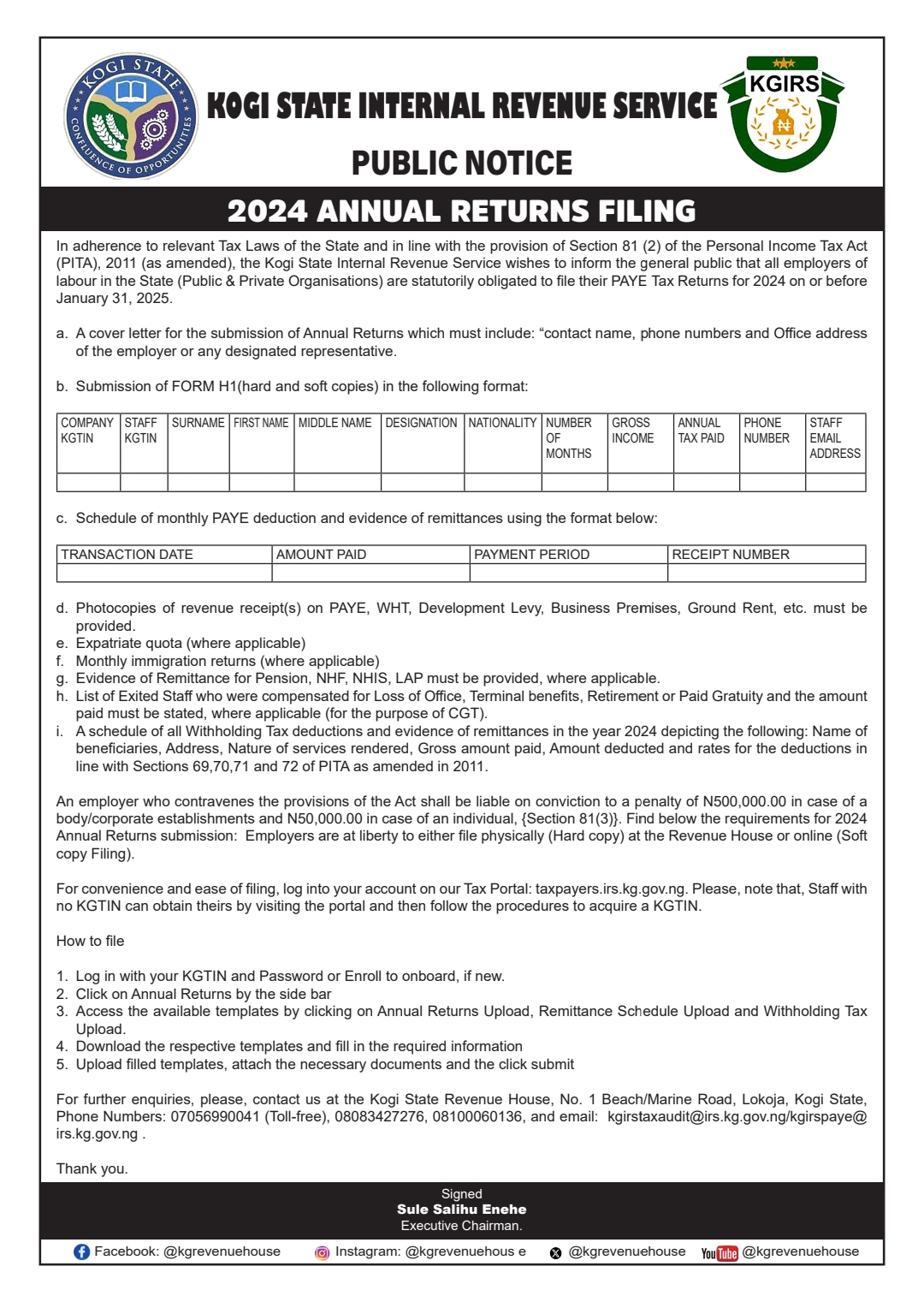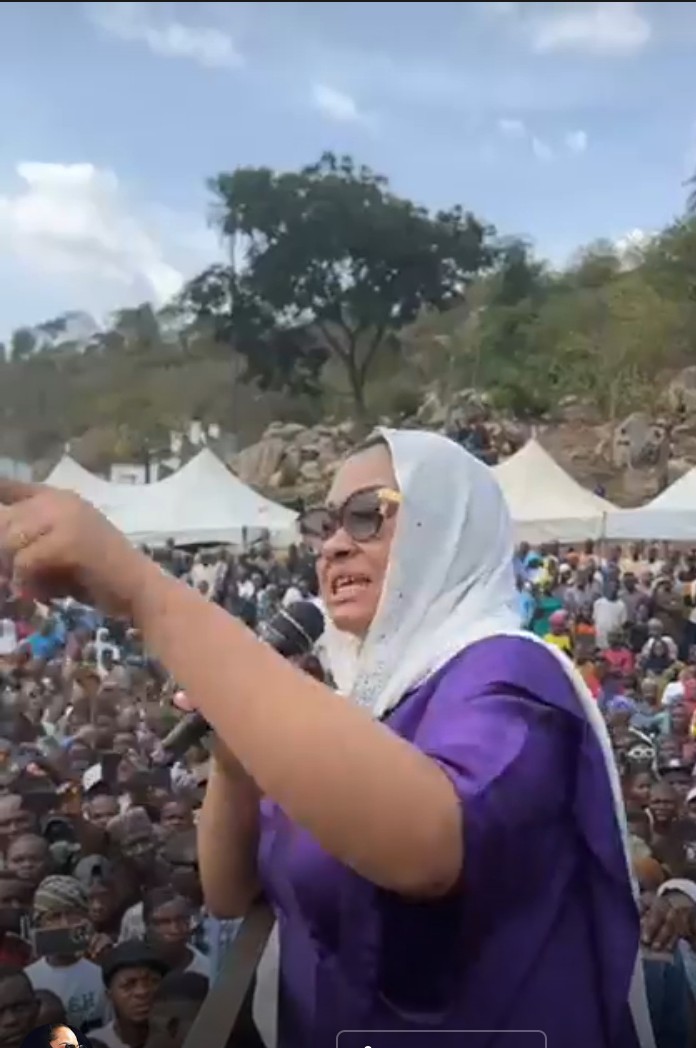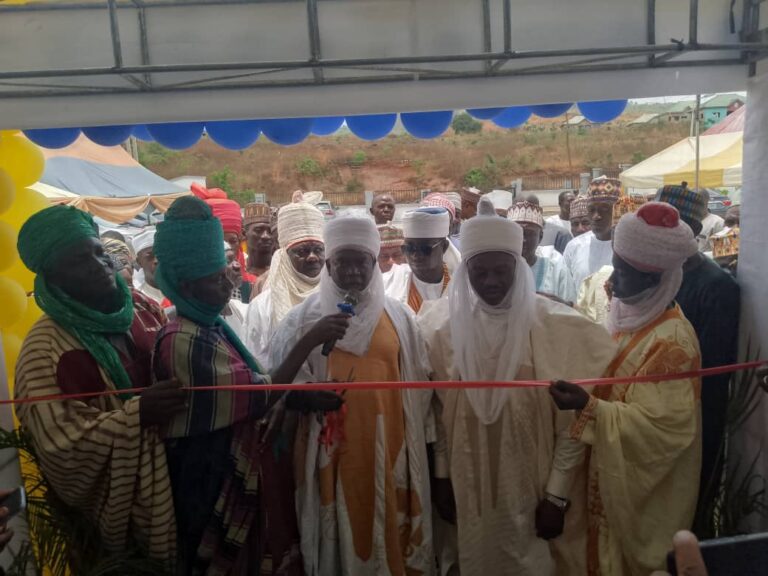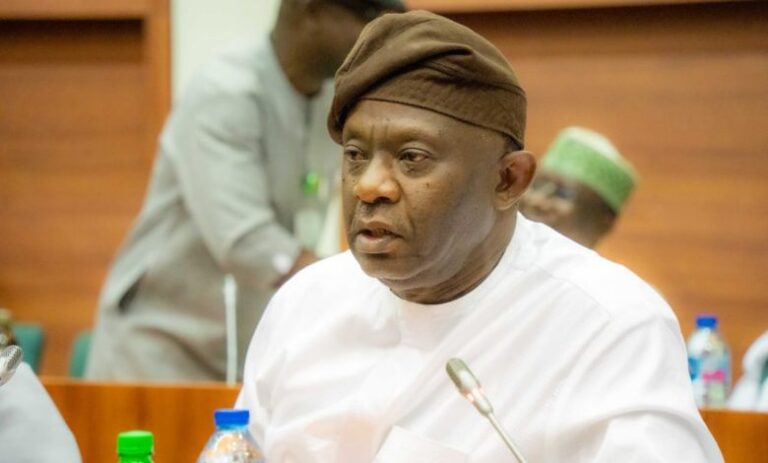Warning: Attempt to read property "post_excerpt" on null in /home/kogiflam/public_html/wp-content/themes/morenews/single.php on line 55


1. PDP & WADA’S APPEAL
The PDP and Engr. Wada’s Appeal against Gov. Yahaya Bello was in the eyes of the law an academic exercise and a waste of judicial time. The Appellants who initially predicated their petition on 3 grounds (Grounds A, B and C) decided to abandon 2 out of the grounds i.e. grounds B and C while concentrating on Ground A. Whereas, Ground A is the Ground on majority of lawful votes, Ground C is the Ground on corrupt practices.
The major evidence relied upon by the PDP and Wada is the evidence of PW19 (a self-styled Forensic Expert) and Exhibit P185A (Forensic Report). Whereas, this evidence became useless the day the Appellants voluntarily abandoned Grounds B and C in the petition as the said evidence of PW19 and Exhibit (P185A) were only pleaded in support of Ground C and not Ground A which their case was solely anchored on.
The position of the law has always remained that parties are bound by their pleadings. MUHAMMED V. APC & ORS. (2019) LPELR-48061 (CA).
Therefore, the surviving ground A must be supported with relevant facts/particulars duly pleaded while evidence in support is led at trial. This was the decision of the Court in a similar situation in the case between CAPTAIN IDRIS ICHALLA WADA & ORS. V. YAHAYA BELLO & ORS. (2016) LPELR-41263 (CA) where the court held thus:_
“Fourthly, it is trite that every ground of an election petition must be supported by the relevant facts or particulars duly pleaded. See Goyol V. INEC (No.2) (Supra).”
Ground A was obviously not supported with relevant facts or particulars duly pleaded by Wada. The evidence of the celebrated self-professed Forensic Expert, PW19 could also not have been used to propel and prove Ground A as the evidence including Exhibit 185A (Forensic Report) connected to it were tied to and led by the Appellants themselves in respect of Ground C which they willingly and voluntarily abandoned.
There was therefore no significant evidence led in respect of Ground A upon which the Tribunal or the Court of Appeal could rely on in granting their prayers. It was thus a classic case of self-inflicted harm and defeat. They voluntarily abandoned their grounds B & C which are grounds of non-compliance and corrupt practices (upon which some evidence including the alleged Expert’s Witness were led) without any prompting. They should therefore blame themselves and not shift the blame. It is submitted that the PDP’s Appeal to the Supreme Court will meet another rock of Gibraltar at the Supreme Court.
2. & 3. APP & DPP’S APPEALS.
The case of both the Action People’s party (APP) and Democratic People’s Party (DPP) were that they were validly nominated but unlawfully excluded by INEC on grounds that they fielded under aged candidates.
Their petitions at the trial Tribunal were dismissed for failure to fist establish valid nomination of their candidates. Their respective appeals to the Court of Appeal were also considered and dismissed having in mind the provisions of Section 177(b) of the Constitution of the Federal Republic of Nigeria, 1999 which stipulates the minimum age qualification for eligibility to contest the office of Governor of a State in Nigeria as 35 Years.
While the APP Governorship and Deputy Governorship candidates were 34 Years of age, the DPP Governorship candidate was 31 Years of age as at the time of submitting the Form CF001 to INEC. Although, they claimed that they relied on a “Not too young to run Act” in fielding their Candidates, INEC made it known to them prior the election that their Candidates were not qualified, the point was also stressed by the Respondents at the Tribunal that the Not too Young to Run Act, did not apply to the age of Governor and that Section 177 of the Constitution remained extant. The said Section 177 of the Constitution was reemphasized in the case of DR IMORO KUBOR & ANOR V. HON SERIAKE HENRY DICKSON & ORS (2012) LPELR-9817(SC), where the Apex Court Per MUHAMMAD, JSC at (Pp. 66-67, paras. F-A) held thus:-
“…Section 177 of the 1999 Constitution as amended. The Section provides: “177. A person shall be qualified for election to the office of Governor of a State if:- (a) he is a citizen of Nigeria by birth (b) he has attained the age of thirty five years (c) he is a member of a political party and is sponsored by that political party and (d) he has been educated up to at least School Certificate level or its equivalent.” The foregoing mandatory requirements imposed by Section 177(a) – (d), be it emphasized, must be conjunctively met. It follows that failure of a person to satisfy any of the four requirements out rightly disqualifies the person from being a candidate for the Election to the office of the Governor of a State.”
One then wonder what the duo wanted at the Court of Appeal after realizing their error prior to the election and at the Tribunal. It is submitted the Courts ought to impose very high/punitive costs on the parties who institute these sorts of frivolous cases.
4. SDP & NATASHA’S APPEAL
Natasha Hadiza Akpoti the candidate of Social Democratic Party (SDP) failed in her mission to embarrass Gov. Bello and his Deputy at both the trial Tribunal and Court of Appeal.
Natasha who participated in the 16th November, 2019 Governorship election in Kogi State had filed a petition challenging the qualification of Governor Yahaya Bello to contest for the election while further alleging that the Governor and Edward Onoja, his Deputy gave false information to INEC via their forms CF001 in aid of their qualifications. In respect of the Governor, she tendered no shred of evidence in support of her claims hence her claim against him was deemed and declared abandoned at the Tribunal and at the Court of Appeal. In respect of Edward Onoja, the evidence of PW14 and PW15 relied upon to establish the allegation of giving false information and submitting a forged certificate to INEC was found NOT to be credible and reliable by the trial Tribunal and the Court of Appeal. In fact, the Court held that although the allegations were not proved, but that even if they had been proved, the allegations will still not sustain their claims as the alleged false declaration/information did not qualify as disqualifying factors under Sections 177 and 182 of the Constitution as held in the cases of AGI v. PDP (2016) LPELR-42578 (SC); SHINKAFI & ANOR. V. YARI & ORS. (2016) LPELR-26050 (SC).
Apart from the issue of qualification, which was found to lack merit, the evidence of her star witness (PW3 Mouktar Atimah) in respect of the grounds of Non-Compliance and Corrupt practices, was found to be ludicrous and empty. In fact, in the words of the Court of Appeal it was held that “his oral evidence was replete with glaring and blaring contradictions, absurdity and was totally unhelpful in proving the petition”.
As for the remaining witnesses called by SDP particularly, PW4 – PW13 who all testified on corrupt practices and violence, both the trial Court and the Court of Appeal found that their evidence were discredited and exposed to be unreliable under cross-examination. Just as PW3, they also were not helpful in propelling Natasha’s case to victory..
Although, she vowed to challenge the decision of the Court of Appeal at the Supreme Court, she will no doubt hit the final rock as the foundation of her case is weak, baseless, and faulty. Natasha is known for exaggerating the chances of her cases in Court while the cases are in reality empty! The case of double registration which she instituted against Governor Yahaya Bello is a case study . She woefully failed at the Federal High Court and the Court of Appeal.
A. Adaramaja Esq., is a Lawyer based in Abuja.




